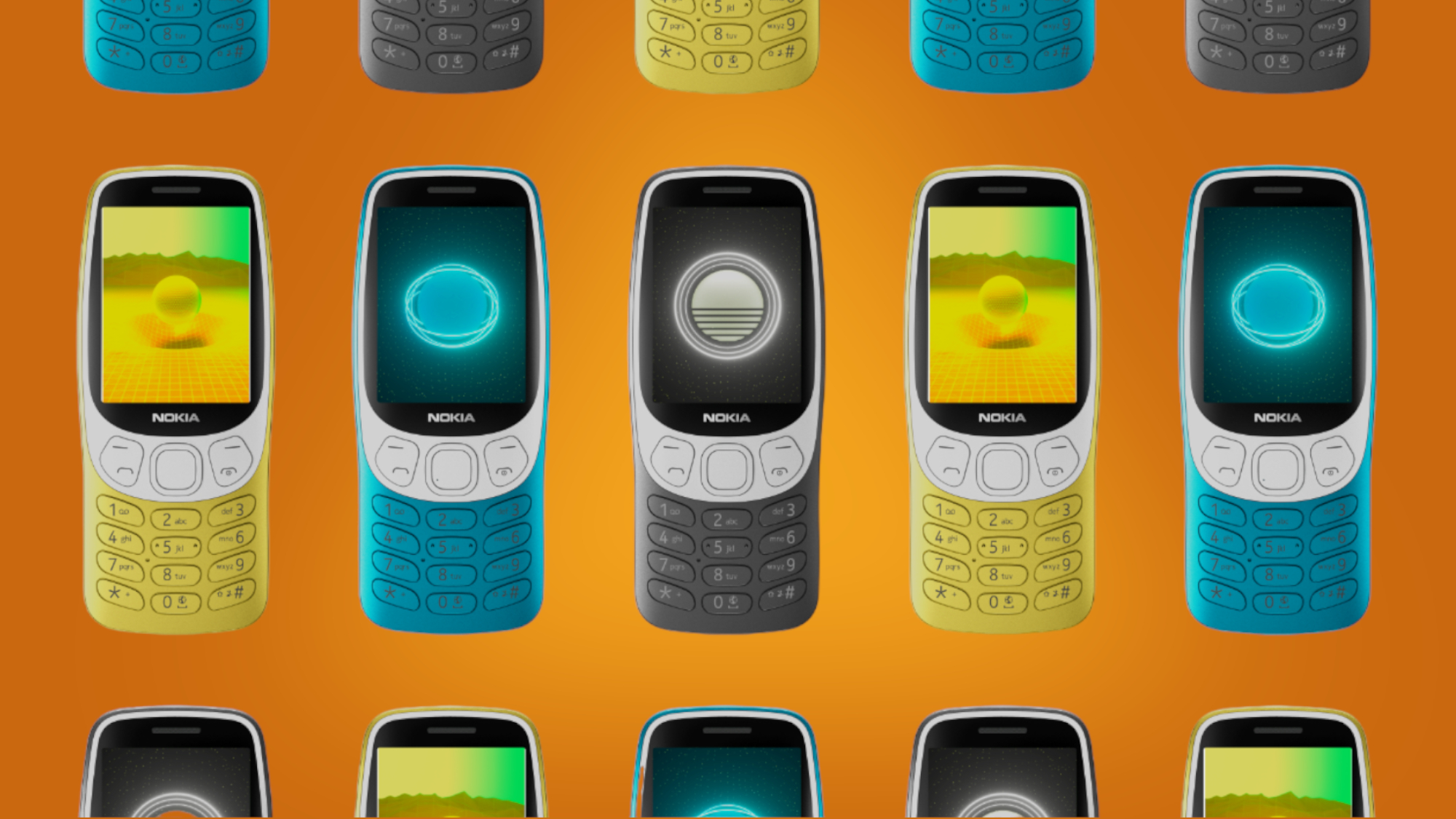
Since phones became smart, people have been buying ‘dumb phones’ to take a digital holiday from the super-connected online world. More and more, the tranquil, low-tech world of the ‘dumb phone’ seems like a lovely getaway, especially if you’ve spent far too long in the social metropolis of a smartphone.
‘Dumb phones’ – which were previously known as ‘feature phones’ until Gen Z rediscovered (and renamed) them – are essentially low-tech mobile devices that resemble the earliest portable mini-phones (think the Nokia 3310, Sony Ericsson W58oi and LG Chocolate). In recent years, they've been reimagined as digital detox tools, and industry stalwart Nokia recently jumped on the dumb phone trend by releasing a modern-day Nokia 3210.
The 3210 costs £74.99 in the UK (it’s not on sale in the US), and is based on the feature phone of the same name that Nokia released way back in 1999. It brings a few new features to the table – namely a camera, Bluetooth connectivity, 4G connectivity and, weirdly, a YouTube Shorts-compatible news app – but this updated 3210 is still a far cry from today's best phones.
In order to see whether there really is still appeal in the dumb phone – or feature phone, as I’m going to call it from now on, because ‘dumb phone’ is a dumb name – I decided to try out the Nokia 310 for myself. Not just try it, mind, but completely abandon my smartphone for a week in order to put the Nokia 310 through its paces; I didn’t just talk the talk, I walked the walk!
Below, then, I've highlighted five things I found myself really enjoying about this Nokia dumb phone, as well as five things I missed about my regular smartphone.
By way of a disclaimer, this isn’t my first digital detox, though it is my first optional one. In the fall of 2023, I went on a 10-day wilderness hiking trip, and knowing that I'd be miles from the nearest socket, I bought a fourth-gen Nokia 105 so I could still check in and let everyone know I was still safe.
However, that was a very low-tech mobile, even by feature phone standards (for context: it’s a third of the price of the 3210) and I was using it out of necessity, not choice. All this is to say that I have experience in the feature phone world, but using the Nokia 3210 was my most involved testing with this kind of mobile since I owned one back in the olden days.
What I loved
I barely needed to charge
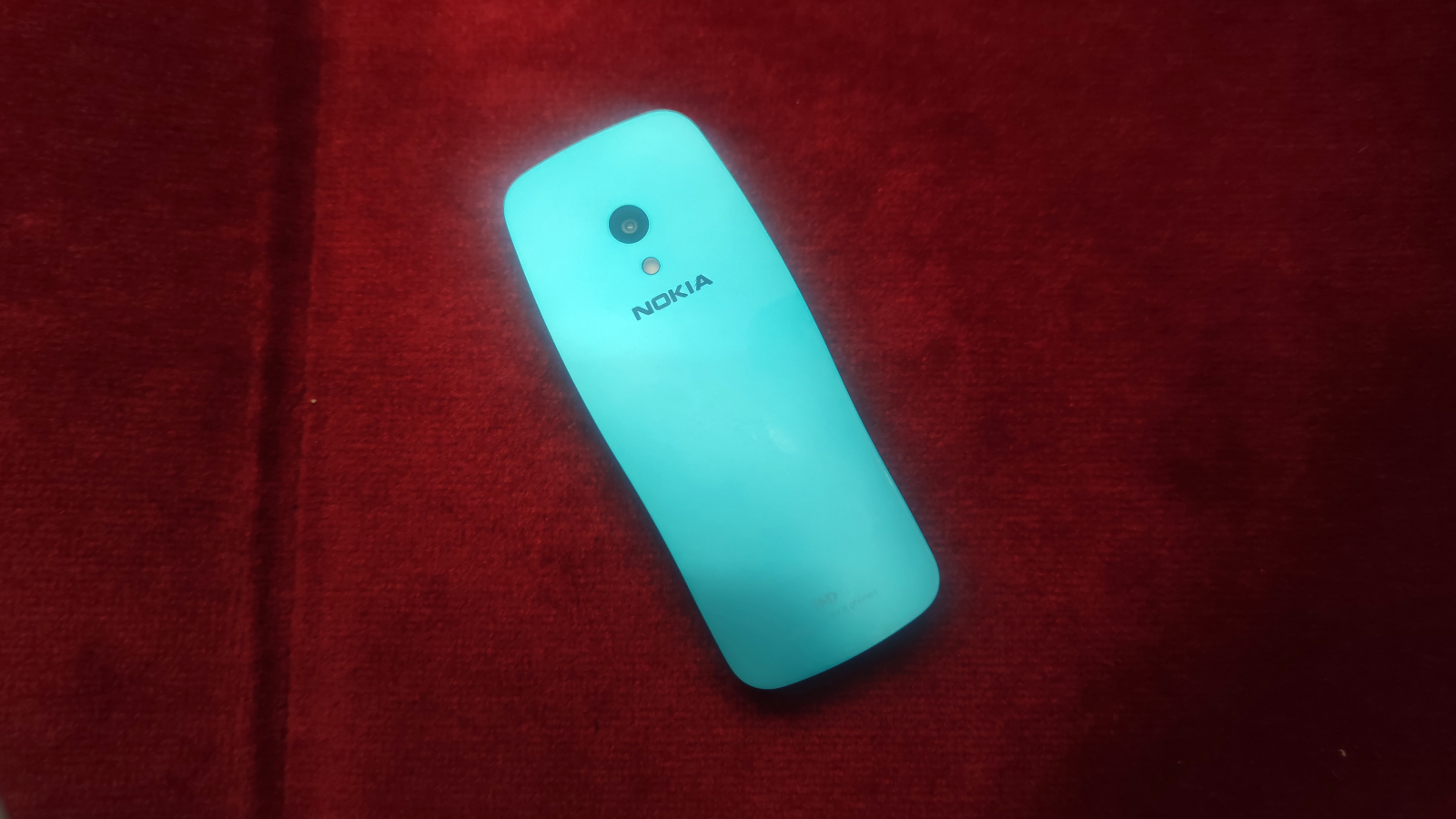
Hi, my name’s Tom and I’m a charge-aholic. I always need my phone to be as close to 100% as possible before I leave the house or office, as though it’ll somehow run down to 0% over the course of my trip to the shops, leaving me unable to pay for my cheese. Yeah, my smartphone gives me a lot of battery anxiety.
This is a fairly new problem for smartphones, as feature phones would last ages without needing to be plugged in, and when returning to the Nokia 3210 I was overjoyed to be saved from my battery anxiety.
I could use the phone for whatever I wanted and it’d end the day with only a few fewer pixels on the battery bar – I only had to charge it once during the week. That's in stark contrast to almost all modern smartphones, which require charging daily.
I had some futuristic features
As I’ve already mentioned, the Nokia 3210 isn’t my first feature phone, but it brings one big upgrade over my Nokia 105 fourth-gen model that I really appreciated – it’s much more futureproof.
The phone charges using a USB-C cable, which is the standard in this day and age, however feature phones have dragged their heels in upgrading from microSD for a while now. The brick phone I bought a year ago had that.
A USB-C port means I can use one charger for everything: headphones, e-reader, laptop or tablet, headphones and some smartwatches too, without needing to carry a separate one for the Nokia. When transferring photos from the phone (more on that later) I could easily plug it into my computer with the same cable I use for my smartphone and tablet.
In adding a USB-C port to the phone, Nokia has made its 3210 ready for the future, and I appreciated every second saved with its fast charging.
I got to play Snake
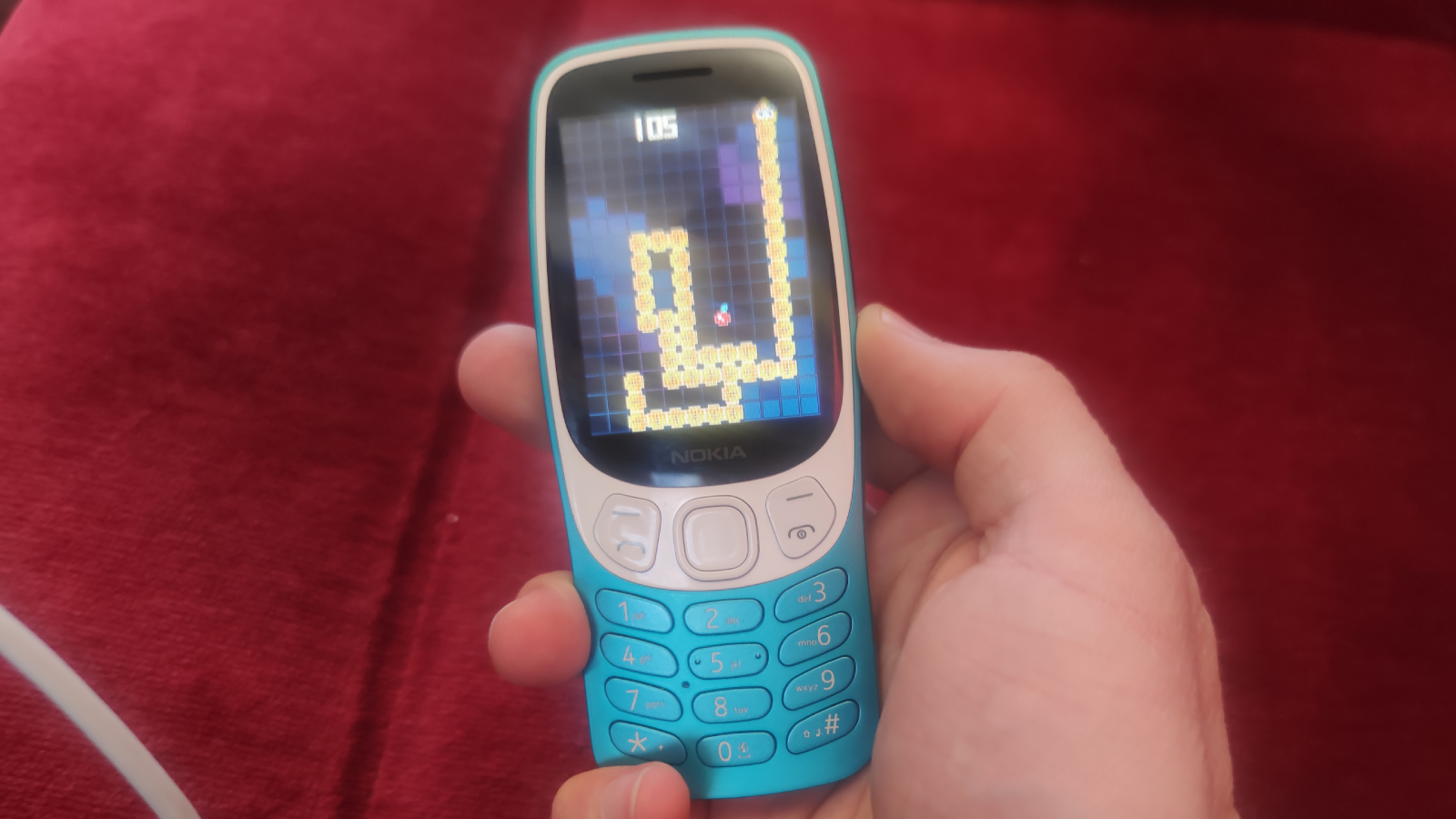
When listing my favorite things about using the Nokia 3210, Snake was the first by a country mile; I only moved it to number three to seem a bit more professional.
Snake is such a classic feature phone game and one of the few things I remember about owning a feature phone when I was younger. It’s so simple but so perfect, easy to get a grip on but hard to master. Playing it on a big bulky smartphone just isn't the same
For a week, Snake took over my life. In down time with my smartphone, I’ll look at various things: the news, social media, casual games, dating apps, puzzle apps and so on. However, every time I picked up the Nokia, I’d open one app and one app only: Snake. I got pretty good at it too!
I wasn't drowning in messaging apps
The best and worst part of using a feature phone is that they’re just not great at keeping you in touch with the rest of the world; a lack of WhatsApp or iMessage means you’re not going to be looped in on texts and messages from your friends.
For some people, that’s the whole point of a a feature phone, and for others that’s the whole reason they’re staying away. But if there’s one thing I definitely didn't miss, it's checking my phone to see random messages from all sorts of people over a smorgasbord of messaging apps.
I basically use WhatsApp for every form of communication, but given that every app these days has some kind of built-in communication tool, I’m often overwhelmed by random unwanted messages on Facebook Messenger, Instagram, Twitter, YouTube, any form of email, Strava, the list goes on. None of that on the Nokia, though.
No – to reach me on the Nokia 3210, you need to know to text me, and it meant I could keep the ‘invite list’ to my phone very small indeed. No more random spam messages through the day; I could be the hermit I wanted to be.
I got to enjoy an old-school cool camera

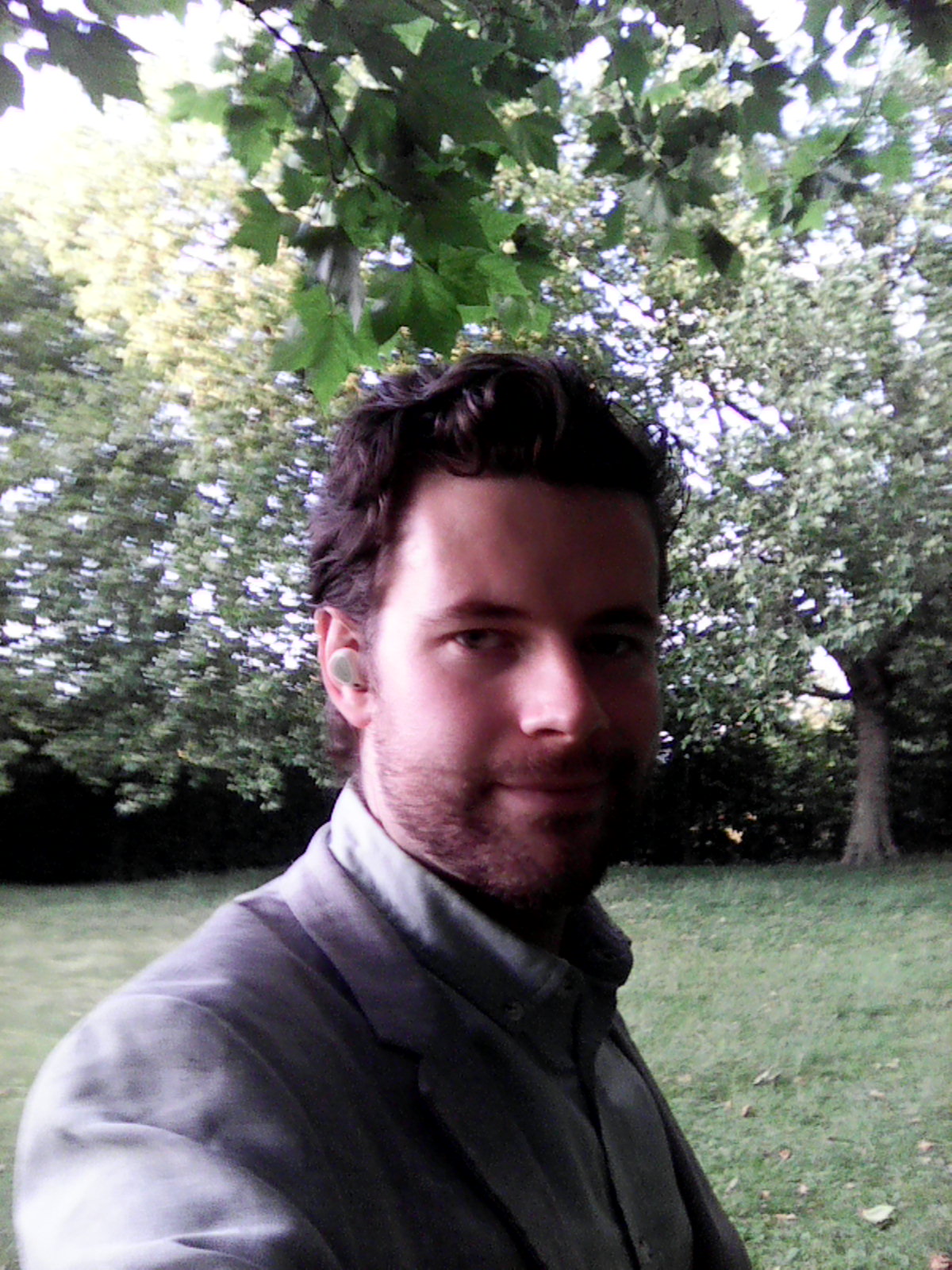


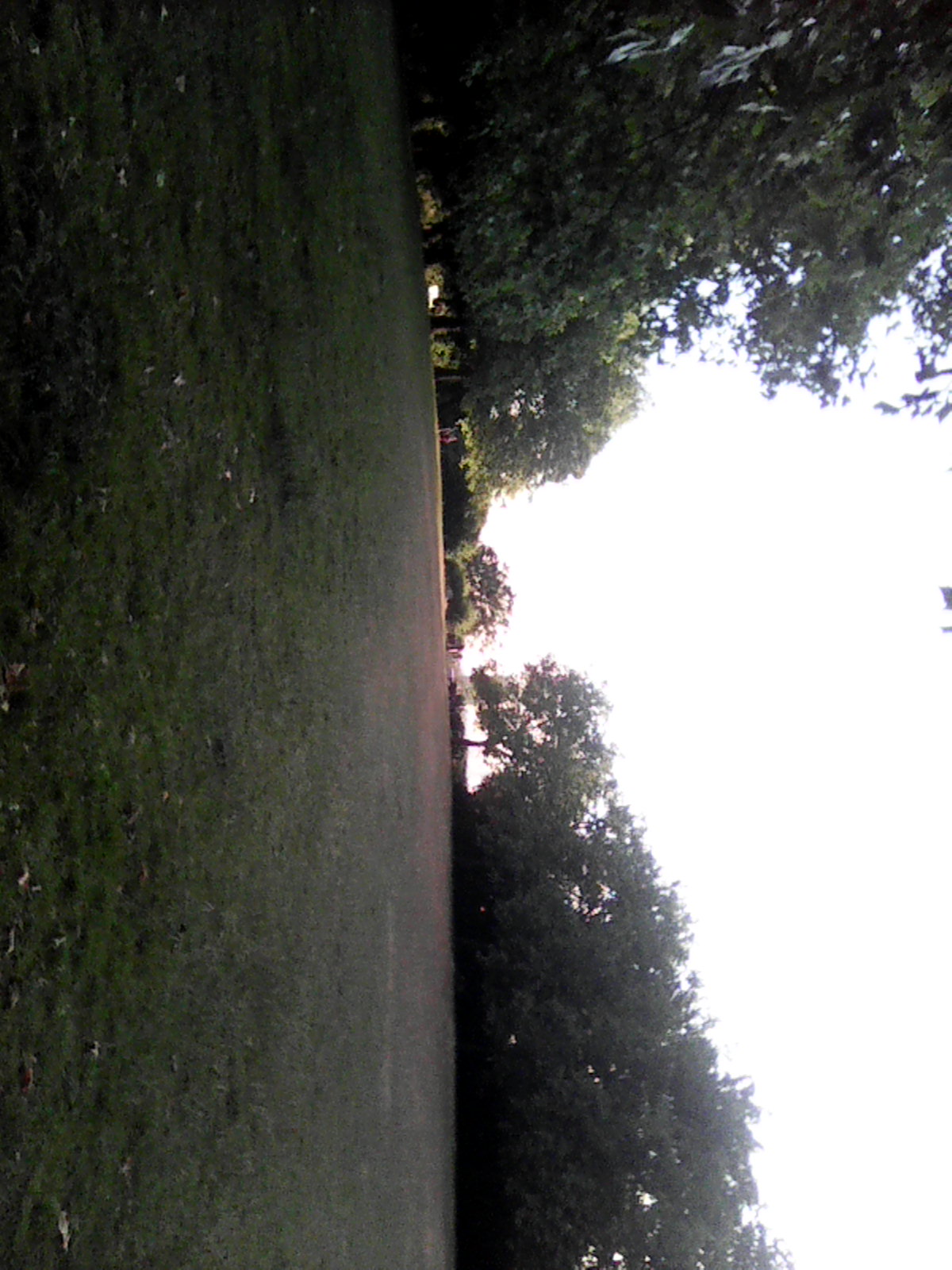
Polaroids are really 'cool' these days – not just with hipsters any more, but with people who are verging on being normal. There’s an appeal of the ‘old-school cool’, of photos that show the metaphorical creases and wrinkles of the technology used to capture them. Photos taken on a feature phone don’t exactly fall under ‘old-school’ or even ‘cool’, but they definitely have a kind of low-fi charm to them.
The photos I took using the Nokia 3210’s 2MP camera don’t look great. The dynamic range is awful, the slightest bit of light totally blows them out, and everything looks so blurry and grainy – these resemble snaps you’d find in the journal of an adventurer who's vanished in the jungle, not something taken on a device released in 2024.
But that’s what I like about them – they’re artistic, and open to interpretation. JMW Turner isn’t my favorite painter because his paintings are easy to make out, but because their expressionist grubbiness leaves something open to interpretation. And it’s the same with this Nokia (anyone who even vaguely likes art is already hating this comparison, I bet).
You don’t get that on smartphones. With high-resolution cameras, AI tools to tweak photos, and software designed to find that ‘perfect shot’ as dictated by boring algorithms, smartphone pictures can look clean… but also totally vapid too.
No, I think I’ll stick to my feature phone selfies, which make me look like a noir detective with half of my face shrouded in darkness, or my impressionist landscapes where nothing is clear, over the boring plainness of a smartphone camera.
What I missed
Googling answers to stupid questions
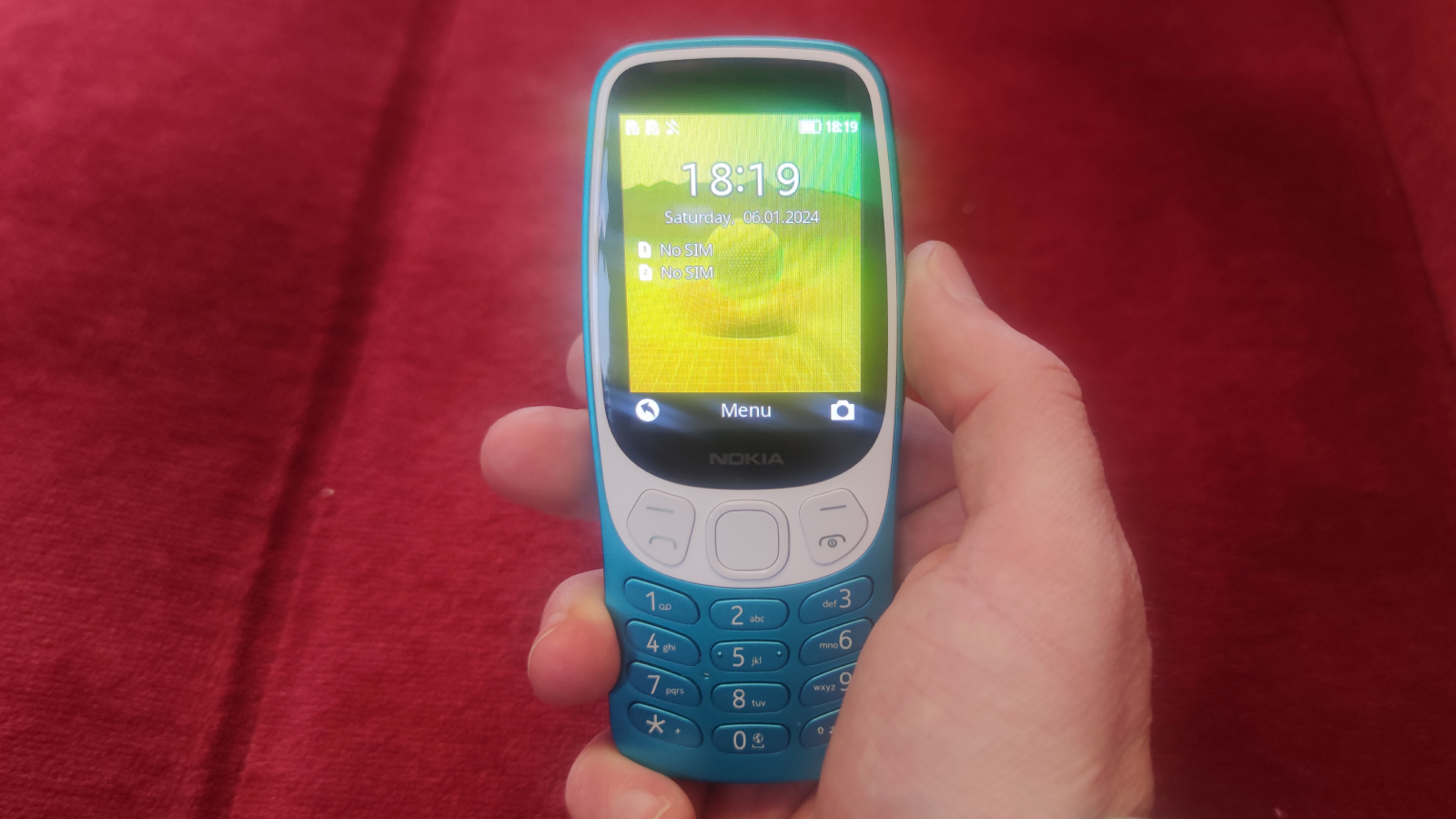
I was surprised about the thing I missed most about having a smartphone. Surprised, and a little worried about what it says about me...
The best and worst thing about the digital era is that it’s easy to Google the answers to things you can’t remember when out and about. I don’t mean important things: ‘which rail lines are closed today?’ (I live in London, the answer’s usually ‘all of them’) or ‘when’s the next bus?’ (you just missed it), but stupid things that you usually discuss or can’t remember after a few drinks at the pub.
Many of these things stem from disagreements between two impassioned people who are certain they’re right (I'm one of them).
But when using the Nokia I couldn’t simply Google whether the Netherlands and France have the same flag (color-wise they do, but the former has horizontal stripes and the latter vertical), or whether it was Donald or Kiefer Sutherland who had tragically passed away that day (the former) or whether pink food coloring in food is made out of ground-up insects (it is).
I was obviously right in 100% of these cases and more, but I couldn’t prove it because I only had a feature phone. And my friends refused to use their phones to fact check because they knew deep down that they were wrong.
And yes, there is an internet app, but you're about to find out why I never fell down an internet rabbit hole using it...
Being able to type at a reasonable speed
For all that we’ve lost in our super-connected futuristic modern world, one thing we’ve gained is all the time we previously spent trying to text people.
It’s not something I remember from when I was young, but old phone keypads, which require multiple button-presses per letter, take ages to use. You wear out your thumbs hammering out letter after letter, on keyboards that Victorian orphans would consider antiquated.
It's an issue I found on my previous digital detox, and I nearly gave up texting people to let them know I was alive and well on the Nokia 105 (shown below) because it took so long!
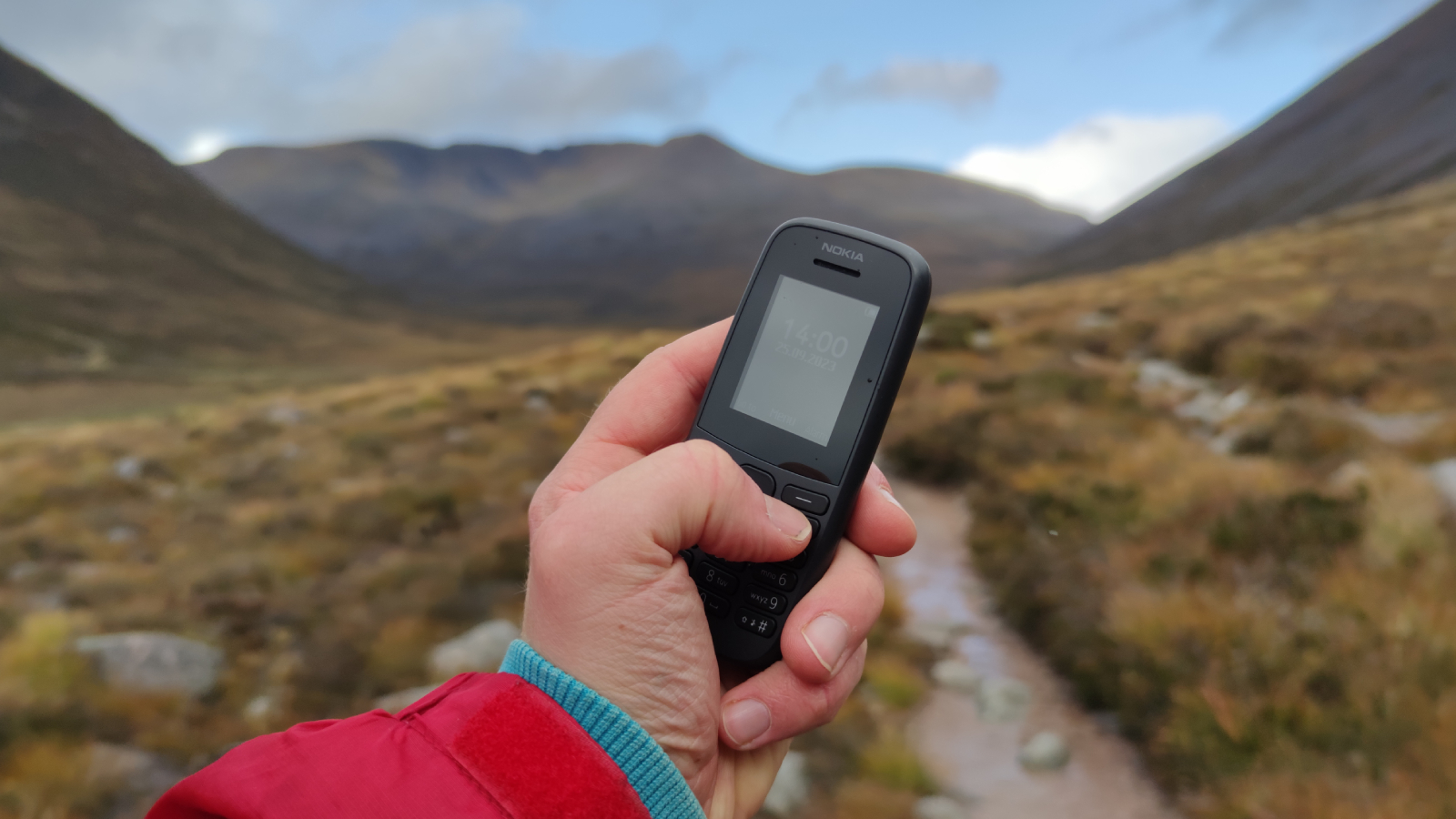
Bear in mind that you need to physically depress the button, not just press on a screen where the letter icon shows. Such effort!
When I returned to using my smartphone, I wanted to weep tears of joy for how easy, quick and painless it was to use the on-screen QWERTY touch keyboard. I also noticed that my texts became a lot longer, since it was easy to type responses to friends – I stopped being the blunt and to-the-point messager that I was with the feature phone.
Listening to music on the go
It was pretty easy to forgo many of the entertainment apps I have on my smartphone when I moved over to the Nokia. No matter how convenient they are, I didn’t really miss being able to use Netflix to watch TV shows on the go or the New York Times app to play little puzzles between sets at the gym.
What I did miss though, is Spotify. Anyone who’s seen my Spotify Wrapped figures will know that I listen to a disgusting amount of music each year – hundreds of hours, easily – and I typically spend a good portion of each day with tracks playing, either directly into my ears or in the background somewhere.
Not with the Nokia 3210, though – I found myself stuck in silence a lot of the time. The phone does have a radio, and you can upload songs onto it for use with the 3.5mm headphone jack, but I’m in my mid-20s, so don’t listen to the radio and don’t own digital music.
No, I listen on Spotify, and without that (or any other music streaming service) on the Nokia, I had no option but to go music-free.
Always knowing where my phone is
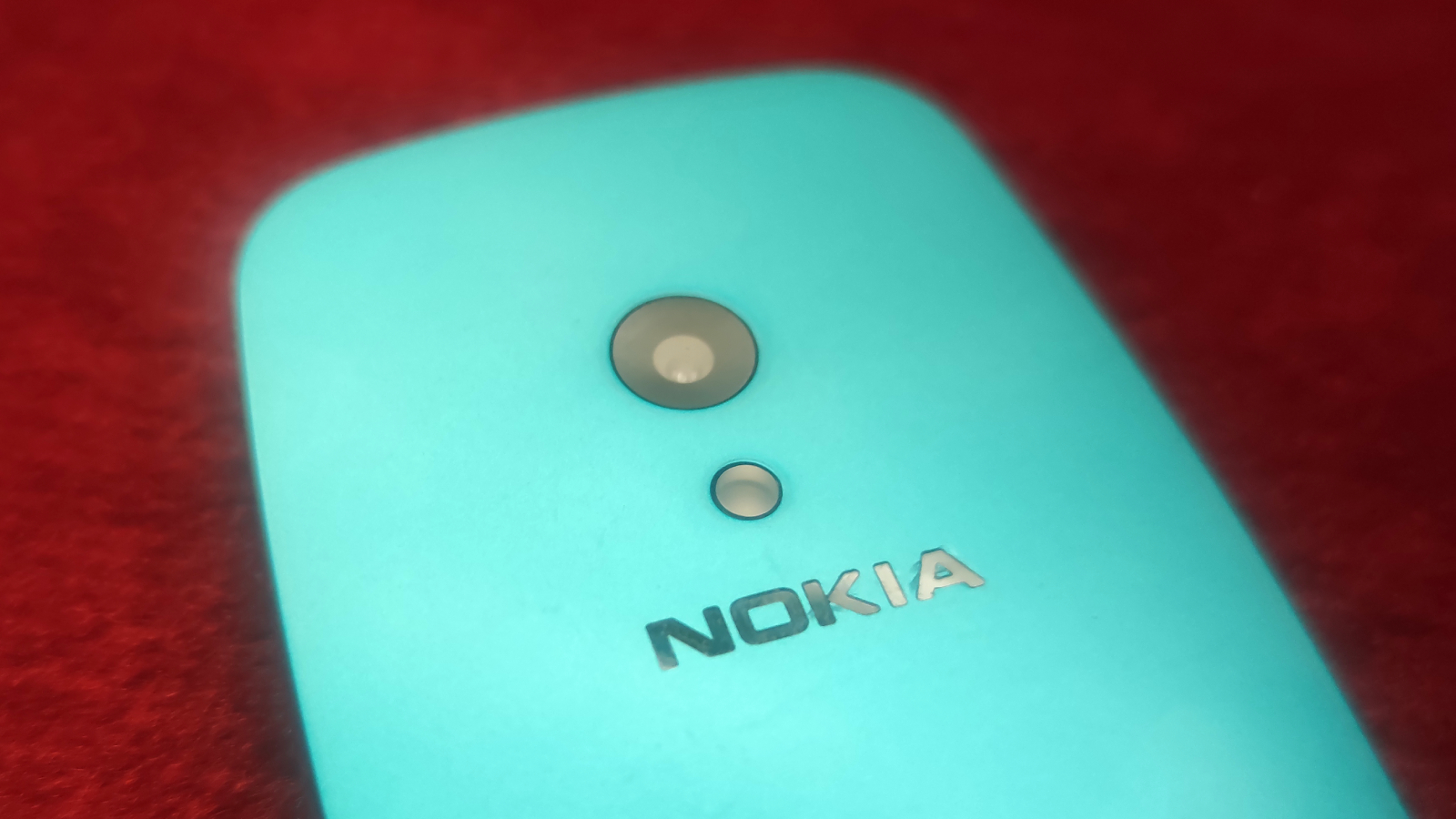
Of all the stupid arguments in this article, this one may be the dumbest reason to miss smartphones.
When I’m out and about, I never lose my smartphone, and I always know where it is. It’s not as huge as some mobiles go, but it’s large enough that I can always feel which of my many pockets it’s in. Not so much for the svelte little Nokia 3210.
This slender little compact device kept disappearing about my person. I couldn’t easily sense which of my pockets it was in just by the sensation of it digging into my leg; I’d have to hunt around by patting myself down like I was preparing for a flight.
And let’s not even mention my repeated ventures losing it in my bag; I’d have to rummage and dig around in my backpack’s pockets like a spelunker trying to find treasure in the deep recesses of a mine. I came to miss my giant Xiaomi Mi Note 10, which always made itself known with its big body.
My friends
I’ll end this list in the same way schlocky TV shows end, with some unwarranted schmaltz: the thing I missed most when giving up my smartphone was my friends.
While I previously said that being hidden from a constant barrage of messages is a good thing, a point I stand by, it does also mean I missed out on group texts and well-meaning messages from people who didn’t know that I wasn’t on WhatsApp.
These include last-minute plan arrangements, invites to events and general check-ins – all things I wish I could have seen.
Sure, I should have told more people that I was only contact-able by text, but even that wasn’t enough all of the time. In a few cases, texts mysteriously only showed up when I put my SIM card back in my smartphone – I think this has to do with them being RCS messages, but I’m not too sure.
If there was to be a perfect digital detox phone, I think it’d need a way to let you still receive WhatsApp messages, because otherwise, you still need to keep your ‘proper’ mobile around to see who’s trying to contact you.
You might also like
- How to have a digital detox and stop checking your phone all the time
- Inside Fairphone, the smartphone maker offering a better deal for the planet
- Best cheap phones: Best budget and mid-range phones to buy right now







